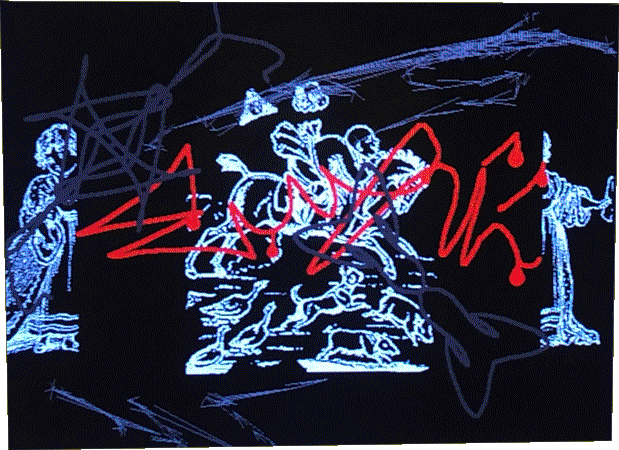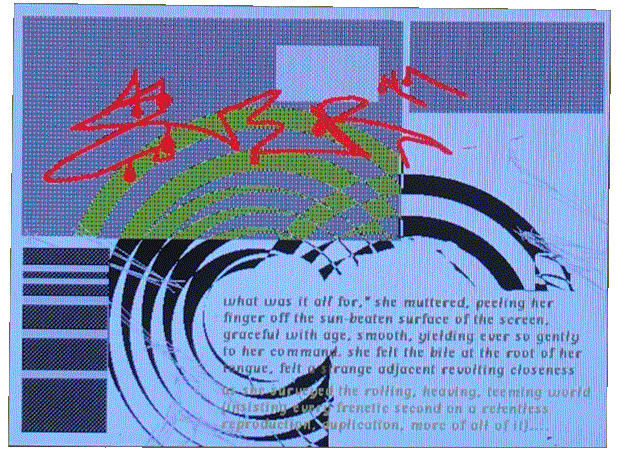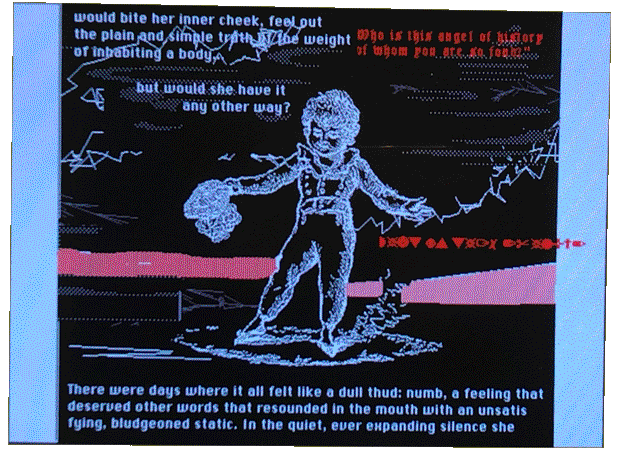On the last flight there was an infant whose persistent wailing punctuated the sharpness in my ears at such high altitudes.
Elsewhere I’ve deliberated about the sordid, cruel, and unlearning patterns of history: E’d remarked that people fail to “learn from history” and let things repeat because our average lifespans are only so long.
I’m unconvinced (just a little)—but as I wean? myself off of Cesaire’s “Discourse on Colonialism,” the question that Breasts and Eggs posited resurfaces:
that human biology insists on its own reproduction—that the characterization of people (we consider ourselves social actors, somewhere... “betwixt gods and beasts”) as “bearing eggs” removes much of the cognitive, emotional distance many people require in order to carry out... operations that teeter them towards either end of this spectrum.
“all this teeming: this flesh, all this human activity”... I had reflected on, when the pang of a certain, sudden (only very occasional) sense of disgust, apathy perhaps?, and sober, sullen indifference gargles, bubbles up again uneasily...
It is not that I am a misanthrope, nor do I cheerily call for antinatalist (I wonder if I’m referring to it appropriately here) rhetoric. But it is (, rather,) this self that listens to current flight’s local toddler cry and wail and tries to make sense of the delusional barbarism of notions of purity and supremacy.
I used to draw body horror-adjacent things because I maybe in some way wanted to confront conceptions of “wholeness” or “naturalness” or “purity,” “beauty”—but as the writhing sheens of sweat coating flabs of flesh began to resemble televised images (both electronic and synthesized, speculative, fantastical) I stopped. There is a fine and blurrily demarcated line between a fiction and fetishization of violence; did I get this sort of right?
NBC’s Hannibal was foundational media for me as a teenager. It was probably the set and production design of it all, the poetic and lyrical writing. The idle intrigue of crime that is palatable, aspirational in its sensationalizable cruelty and violence. But after reading Cesaire I feel that there is something fundamentally unresolved–is it unresolvable?—about the audience’s acquired gaze when consuming Hannibal. While I haven’t read the book, the television adaptation in my impressions of it not only feels like a gesture towards art directed transgression and taboo, but has that particular affected air—not of pretension, but—what is it? Snootiness?
Snootiness is simply a synonym for pretentiousness, is it not...
Yesterday (or the day before if I recall) I scrolled across and encountered a video of people in some big city (let’s let New York stand in for a while, since I’m not bothered to visit Instagram dot com to corroborate) who were sitting outside, at lunches, get togethers, brunches, watching—spectating—protests passsing them by. What was it, in the chuckle and holding a wine glass to one’s face, obscuring one’s expression, countenance? What was it, that inexpressible yet fascinating feeling that hid—in various degrees of clarity—behind distracted glances towards protestors—before continuing on in their sentences? It reminds me of the man who shouted,
Stop!
Stop! Stop!
... when someone at a city/town hall made a statement about... “the current state of things.”
The different, myriad, kaleidoscopic samplings—as if an aesthetic, affective charcuterie board—of non-response: patriotic virtues of consumption and unbothered consumerism (because we were born to be consumers, lest you forget?) performed with sufficient, carefully doled out indifference, nonchalance, sprezzatura. Like the way you aren’t sure if you can feel the street’s gaze on you as you move past crowds in a flurry: gestures of distance, of separability.
The (self-imposed?) forceful push to “move on” into “new normals;” to regard a weirdly cool summer day and appreciate, with some measure of sadness, the way light still falls into shadow in your favorite way; the peculiar observation of your own life in narrative framing from a weird, 1.5 or 2.5 or 3.4-dimensional perspective.
The confuddlement (or to respect English, bewilderment, actually) that it is 2025, a calendar year that felt so out of reach...
In a previous post I’d mentioned how sometimes when I’m in airplane mode, I’ll imagine the aircraft as a rollercoaster carriage. Or an elevator, perhaps. And very macabrely, a readymade morgue. It strikes me just now: that efforts to tame the fundamental uncertainty of human being is now some sort of financialized Costco hot dog/rotisserie chicken / memecoin? In that the “culprit” or our Helen has been storytelling all along—as DB writes in storytelling economies, as CK writes in her introduction to Narratopia.
A metaphor is a story, a compression format that appears to remove nuance, “noise,” contradiction. A while ago on a walk around the neighborhood I’d realized that all these personality tests—if I can crudely surmise—are also compression algorithms. Like a .zip that packages your various moments of feeling as (un,non)comprehension. But unlike .zips—whose technial workings I should revisit—these tests, labels, categories do not rerender into the richness of subjective/personal lived experience. Would you like to be a bat, or would you like to imagine, postulate, suggest design changes to how we theorize how it feels like to be a bat?
(Because maybe by communing with bats in ways that don’t demand a form of taxidermy, you could get halfway there...?)
Different “compression algorithms,” when composited, collated, compiled, or rather “stacked” atop one another—present an illusion that the sum is greater than its parts. And it is perhaps so. I might be able to glean impressions of you I would not have otherwise arrived at if I didn’t ask for your self-identified descriptions across Enneagram, Myers-Briggs, horoscope, D&D alignment, taste in visual/advertisement-oriented things.
“This is for your safety and the safety of those around you”
But at the same time—however you slice it, it is still important to understand and appreciate the impenetrability of others’ experiences. Is there a compression format such that the particularities of individual experience can be conserved whilst remaining porous somehow, open to generous, broad interpretation?
Unresolved expectations of personal impunity, expectations of exception.




